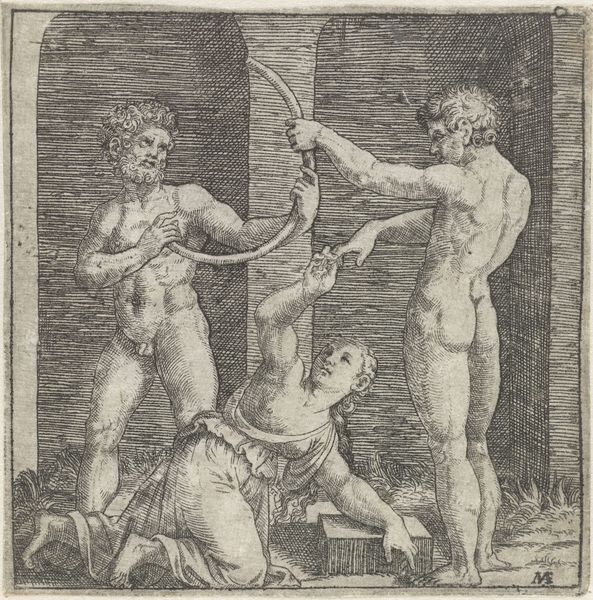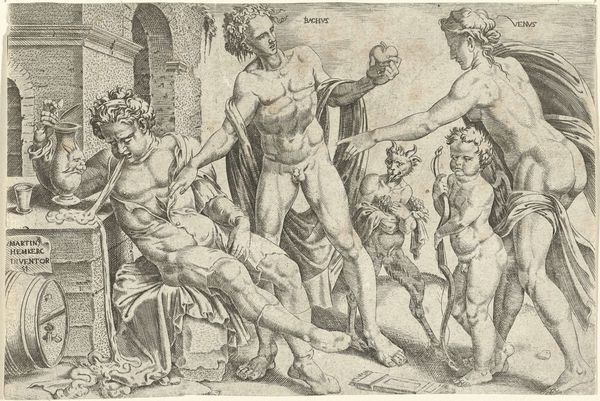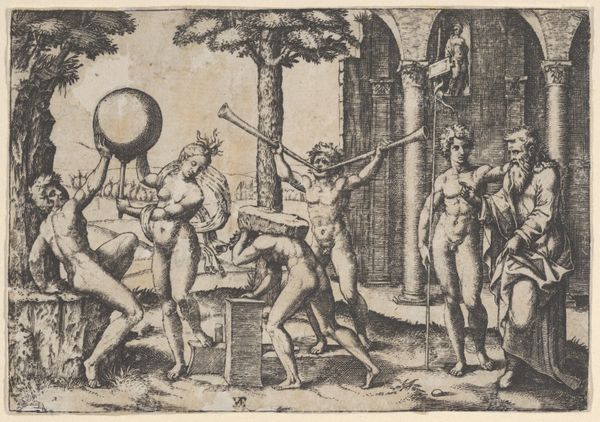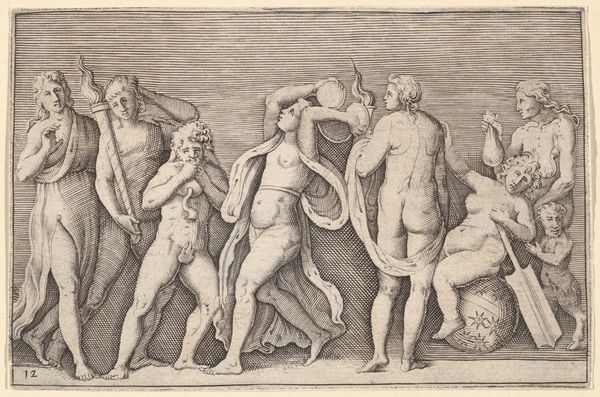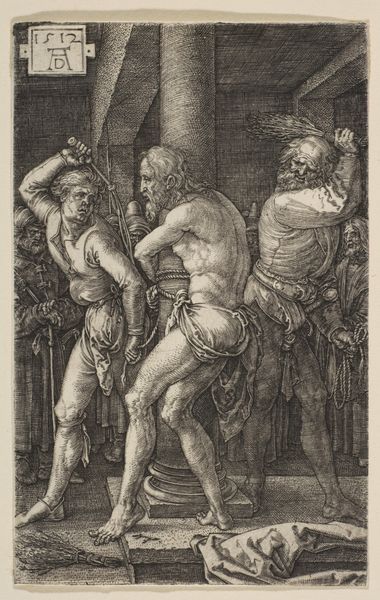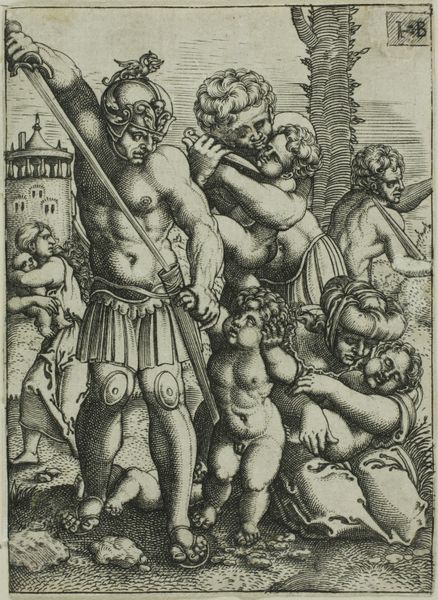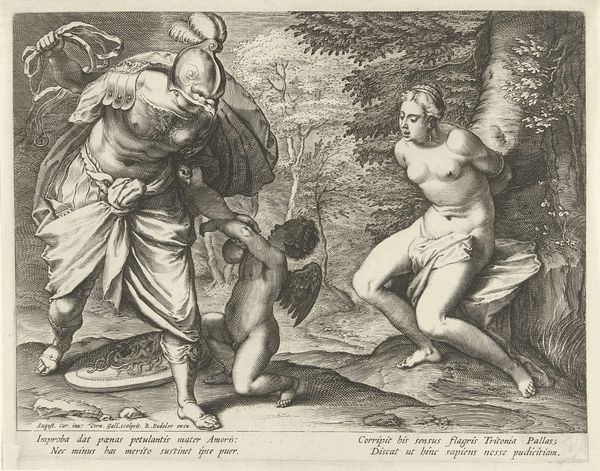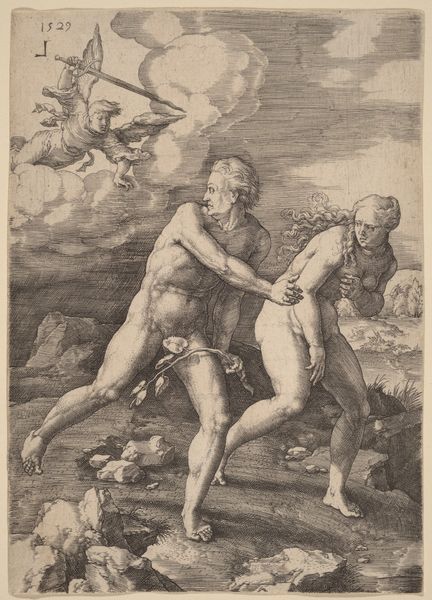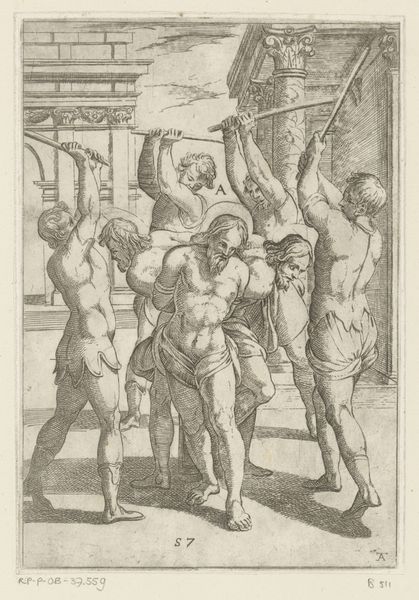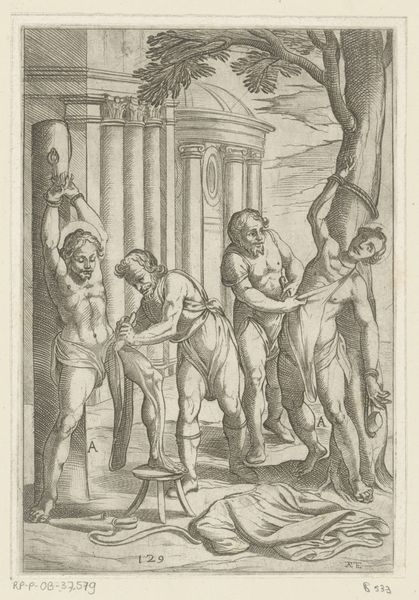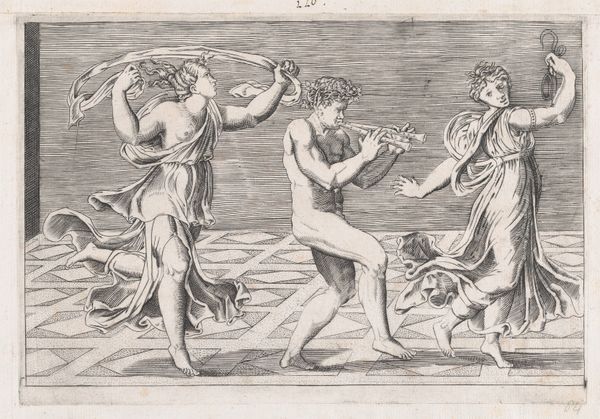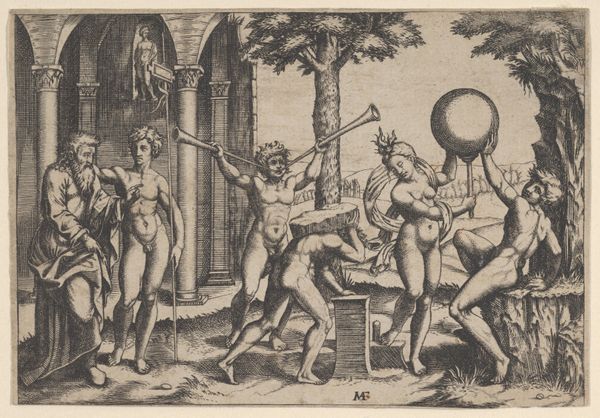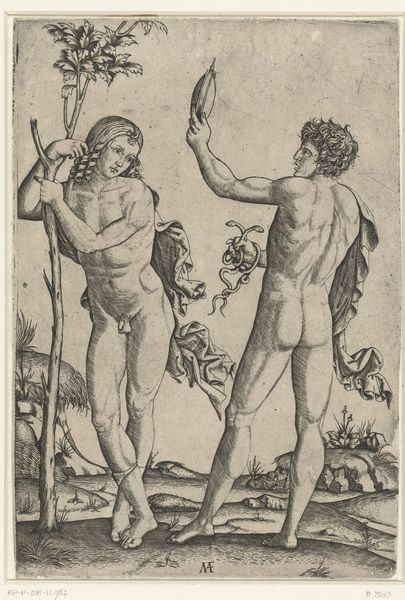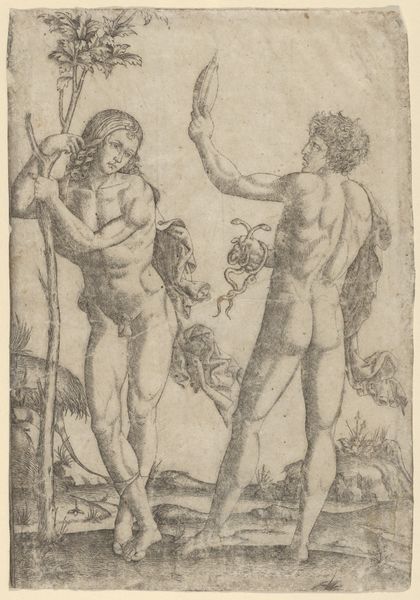
Twee mannen buigen staaf krom en vrouw schuift ring aan vinger man 1510 - 1575
0:00
0:00
anonymous
Rijksmuseum
print, intaglio, engraving
# print
#
intaglio
#
figuration
#
11_renaissance
#
history-painting
#
engraving
Dimensions: height 81 mm, width 84 mm
Copyright: Rijks Museum: Open Domain
Editor: Here we have an anonymous engraving from between 1510 and 1575, titled "Twee mannen buigen staaf krom en vrouw schuift ring aan vinger man" or "Two men bend a rod crooked and a woman slides a ring on a man's finger." It’s at the Rijksmuseum. The composition feels quite odd to me. What do you see in this piece? Curator: Immediately, I see a narrative laden with gendered power dynamics typical of its time. The men, depicted nude and actively shaping this rod, are symbols of masculine strength and control, seemingly dominating the scene and the woman who is at the mercy of what these figures decide. How might we interpret the woman's action of placing a ring as an act of submission or perhaps something more subversive? Editor: Submission definitely comes to mind at first glance. The positioning of the figures—her kneeling below the standing men, looking upwards… but you used the word 'subversive'. In what sense? Curator: The ring could represent the bonds of marriage, or ownership, but consider the implications of her actively placing it. Is she willingly participating in her own subjugation, or is there a calculated performance embedded within this gesture? Where might contemporary feminist theory intersect with readings of this historical scene? What do you think? Editor: Hmm... the woman *is* enacting the ritual... Okay, so the act itself can be read in different ways. She could be performing the expected role, maybe even using it to navigate or subvert those expectations from within the system. Curator: Exactly. Considering the socio-political context, the piece speaks to the complex negotiations of power that women navigated. Editor: That gives me a lot to consider! Thank you for shifting my initial understanding! Curator: And thank you for exploring it with me. It’s through such critical dialogue that we can unveil the latent discourses embedded in art.
Comments
No comments
Be the first to comment and join the conversation on the ultimate creative platform.
